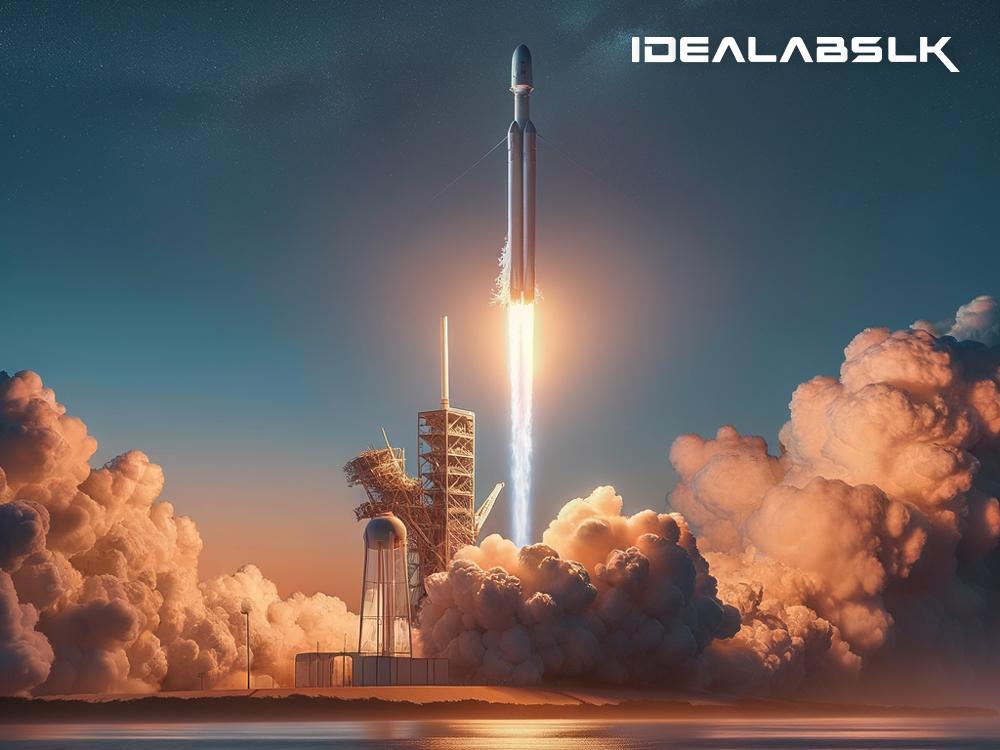Elon Musk's SpaceX and the Space Economy: Pioneers of a New Space Age
The realm of outer space, once the exclusive playground for superpower nations like the United States and the Soviet Union, is now witnessing an exciting new era of exploration and development. At the forefront of this cosmic revolution is Elon Musk's SpaceX, a private company that is not only challenging the status quo but also reshaping our approach to the stars. Let's delve into how SpaceX and other private companies are paving the way for a new era of space exploration, and what this means for the burgeoning space economy.
The Rise of SpaceX
Back in 2002, when entrepreneur Elon Musk founded Space Exploration Technologies Corp., more commonly known as SpaceX, the goal was ambitious and clear: make space travel cheaper and more efficient, with the ultimate aim of colonizing Mars. For years, space exploration was a tremendously expensive endeavor, largely funded and controlled by governments. Fast forward to today, and SpaceX has not only developed reusable rockets but also significantly reduced the cost of sending satellites, supplies, and even humans into space.
The Game-Changing Falcon Rockets
At the heart of SpaceX's success are its Falcon rockets. The Falcon 1, Falcon 9, and the heavy-lift Falcon Heavy have revolutionized the space game. The real game-changer? These rockets are reusable. Traditionally, rockets were one-use only, which meant each launch was exceedingly expensive. By making rockets that can land back on Earth and be used again, SpaceX has dramatically cut costs and increased the frequency of space missions.
Pioneering the Space Economy
SpaceX's innovations have opened up a multitude of opportunities, fueling what many are calling the "space economy." This new frontier is not just about exploring space but also about capitalizing on the vast opportunities it presents, from satellite-based internet services, like SpaceX's own Starlink project, aiming to provide high-speed internet across the globe, to potential mining operations on asteroids for precious metals.
Moreover, SpaceX's achievements have sparked a new interest in space from private investors and companies worldwide, leading to an explosion in startups and investments in space technologies. From space tourism ventures promising vacations in orbit, to companies planning to mine the moon for water and minerals, the space economy is burgeoning with possibilities that once seemed confined to the realms of science fiction.
Collaborations and Competition
SpaceX's journey hasn't been a solitary one. Collaborations with NASA have been crucial, allowing SpaceX to resupply the International Space Station (ISS) and, more recently, send astronauts there. These partnerships between the public and private sectors have proven beneficial for both sides. NASA saves money, which can then be used for other missions, while SpaceX gains valuable experience and credibility.
However, SpaceX isn't the only player in the field. Other companies like Jeff Bezos's Blue Origin and Richard Branson's Virgin Galactic are also making strides in space tourism and exploration, creating a healthy competitive environment that drives innovation and lowers costs even further.
The Road Ahead
As exciting as these advancements are, they also bring forth challenges and questions. The increasing number of satellites and potential space debris raises concerns about space traffic management and the sustainability of space activities. Moreover, as humans venture further into space, ethical and legal questions about the exploitation of space resources and the preservation of celestial bodies come into play.
Nevertheless, the path that SpaceX and other private entities are carving in space exploration and the economy is undeniably leading us into a new era. An era where space travel might become as routine as airplane flights, where the internet comes from the sky no matter where you are on Earth, and where the resources of space fuel new technological advancements and possibilities.
Conclusion
In sum, Elon Musk's SpaceX has not only revitalized interest in space exploration but has also laid the groundwork for a thriving space economy that promises to benefit humanity in numerous ways. While challenges remain, the potential of this new frontier is boundless. As private companies continue to innovate and push the boundaries of what's possible, we stand on the brink of a new age of exploration, one that promises to reveal untold mysteries of the universe and unlock opportunities beyond our wildest imaginations.

